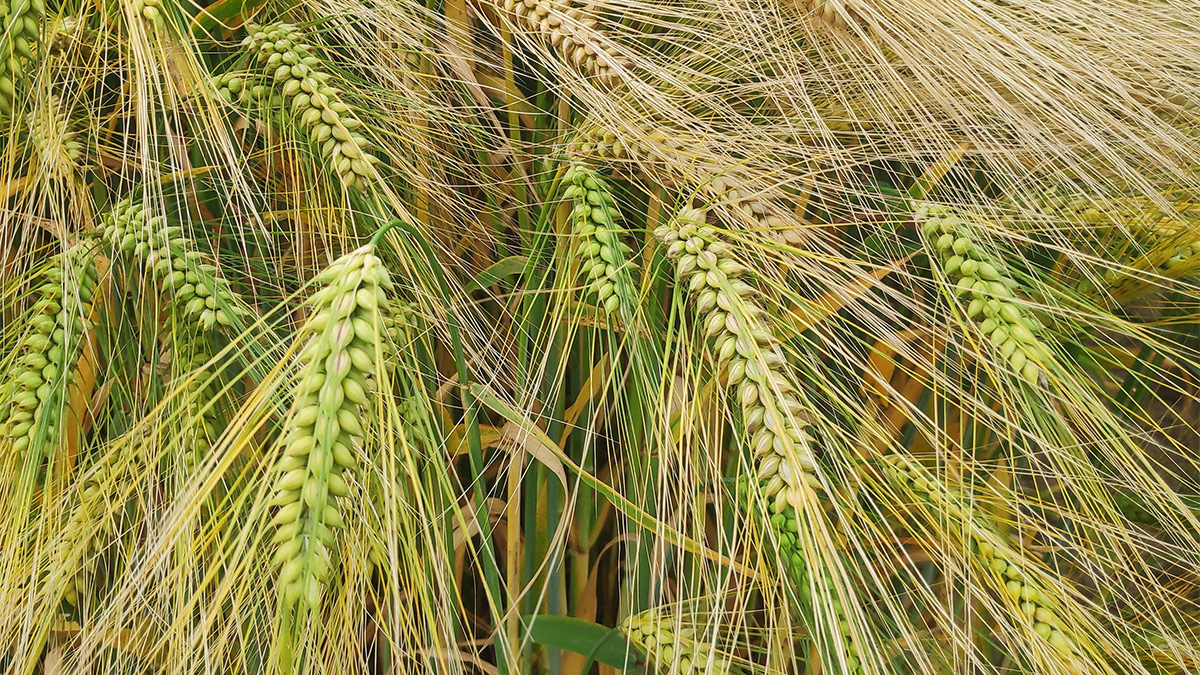Published:

Malt whisky and cereal experts at Heriot-Watt University are testing barley grown with green fertilisers to make sure it's still fit for Scotland's national drink.
Barley makes up 63% of Scotland's cereal crop and is used for malting and distilling, as well as animal feed.
Its production depends heavily on nitrogen fertilisers that are made from fossil fuels.
Reaching net zero means making our food production more sustainable. Biostimulants can hopefully do just that, but we need to be sure whisky won't suffer as a result.
Using more sustainable fertilisers will help make barley 'greener', but farmers and the whisky industry must be certain their use won't make the crop less suitable for whisky production.
Heriot-Watt has been funded by the Royal Society of Edinburgh to put this barley to the test over two years and make sure it doesn't damage the dram.
Testing barley grown with three types of sustainable fertiliser
The Heriot-Watt team is working with scientists from University College Dublin in Ireland who are testing three types of sustainable biostimulants, or fertilisers.
Dr Angela Feechan, a plant pathologist at Heriot-Watt, said: “The Irish BioCrop project funded by the Department of Agriculture, Food and the Marine is carrying out field trials at the moment, and we'll be using their grain.
“They are investigating how biostimulants made from algae, bacteria and yeast perform for barley growth, health and yield compared to traditional fossil fuels.
“It's not enough to know if we can grow barley without fossil fuels. We need to know what changes using biostimulants could have on them, whether it's their quality, resistance to disease, how they respond to high heat or whether their flavour changes.
“Reaching net zero means making our food production more sustainable. Biostimulants can hopefully do just that, but we need to be sure whisky won't suffer as a result.”
A toast to micromalting
The BioCrop project will supply three barley varieties to Heriot-Watt: Cassia, Valeria and RGT Planet.
Dr Ross Alexander and Dr Calum Holmes will carry out controlled experiments in the university's world-renowned International Centre for Brewing and Distilling (ICBD).
Dr Ross Alexander said: “We'll be testing the barley in our micro maltings, which gives us a very controlled way to test grains at all stages of whisky production.
“Although it's laboratory-based, it is possible to produce malt comparable to that produced in commercial maltings.
“We'll examine the barley on the nanoscale throughout the process to ensure it meets industry standards. That's everything from how its seeds grow, grain size, enzyme values and soluble protein content.
“Nitrogen content is key to barley meeting market specifications. Malt distilling requires a nitrogen level of below 1.65%.
“Any change to that could mean it's not useable for whisky production; the micro malting analysis will give us certainty on the effect of biostimulants on barley.”
The project will run for around two years and the Heriot-Watt team will visit the field trial site at Lyons Farm, University College Dublin to see the biostimulants in action.
The project is funded by the Royal Society of Edinburgh. The BioCrop project in Ireland is funded by the Irish government's Department of Agriculture, Food and the Marine.